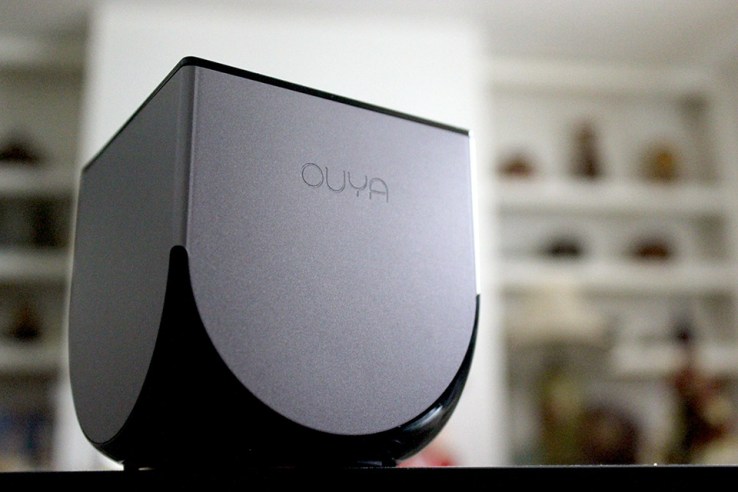
We’re hearing that Razer, which creates laptops and other gaming hardware, is in the process of acquiring Kickstarter-backed Android console maker Ouya. TechCrunch couldn’t learn the terms of the deal, which we’ve heard are still in flux, but the acquisition would bring to a close the tale of a very early first-mover in the market of set-top gaming consoles outside of traditional power players.
Ouya was one of the most successful Kickstarter projects of all time, raising around $8.6 million before getting a $15 million round from investors like Kleiner Perkins and Mayfield Fund. The project originally sought to raise around $1 million but promptly blew past that goal in its first day on Kickstarter.
One of the first of its kind android consoles, Ouya offered developers a way to build games that were specifically tuned for a television experience. This was at a time when Microsoft and Sony had an independent developer ecosystem, but nowhere near as fleshed out as it is today (and at the time, the developer kits actually had a price tag). Throughout the past several months, Ouya has held conversations with around a dozen or so companies about a potential fit — though it could have been more than that — according to our sources.
That challenge, too, was apparent to co-founder Julie Uhrman, who told NPR in an interviewthat “it takes a lot of guts and courage. If I wasn’t a female, I’d say, ‘big balls.’ ”
Uhrman is a longtime video game exec with more than a decade of experience, and with the initial success of the Kickstarter campaign Ouya quickly attracted interest from independent developers. The more open hardware, too, piqued their curiosity. Last year around this time the company had 36,000 registered developers. It enlisted the likes of Kellee Santiago, one of the original creators of Flower, to help build out its developer ecosystem.
Earlier this year, Alibaba invested $10 million in Ouya with plans to actually find a way into the console market in China, which even today is nascent. We heard that deal valued Ouya somewhere between $60 million and $80 million. Alibaba has its own set top Android devices, and at the time expressed interest in bringing the company’s games to those devices,according to a report by The Wall Street Journal. At that point, it became increasingly clear that Ouya was valuable as much as a game development platform as it was a hardware manufacturer.
But of course, being the first of its kind comes with an array of challenges that even at the time are hard to foresee. But despite building a large independent developer ecosystem, the company still faced the challenge of facing broad adoption in an increasingly competitive Android set top market that quickly saw new challengers like Amazon and even Google. Ouya, also like some startups, faced the challenge of dealing with venture debt after securing some from TriplePoint Capital, according to a report by Fortune.
And hardware in general is a tough business to be in. The console was originally designed by Yves Behar, and during the fundraising process Ouya had considered an updated version of the console, our sources said around the time of the reports of a potential strategic investment. Building hardware and a strong supply chain can be a major and expensive challenge for new startups that may have to deal with delays and an extensive negotiating process.
Still, the excitement around the Kickstarter campaign and its early venture round proved that there was a market for set top Android devices, and even larger companies began building new products for that market. But the first mover is not always the mover that wins.

Comments
Post a Comment